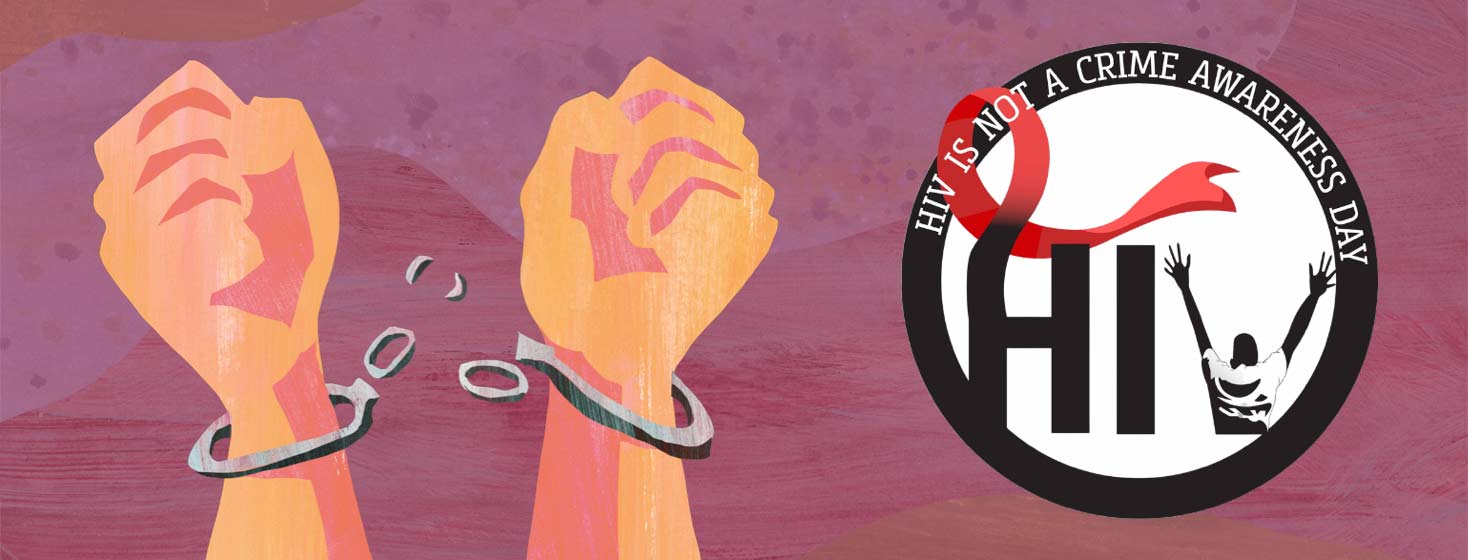My Advocacy Journey and the Criminalization of HIV
Living with HIV brings many concerns. Daily headlines detail issues we must advocate for or mobilize around. HIV culture and history hold people accountable to the declaration: "Nothing About Us, Without Us." We must ensure we fight for our quality of life to be prioritized.
To build on that momentum, advocates added another awareness day to the calendar. This day focuses on specific communities, prevention strategies, and honoring lives lost. We now designate February 28 as HIV Is Not A Crime Awareness Day to address the criminalization of HIV status.
How it started
I started HIV policy advocacy in 2015. That year marked my awakening regarding the quote, "You care about HIV criminalization; you just don’t know it yet." The quote resonated strongly when I saw it on a Sero Project slide deck.
The text appeared under an image of Kerry Thomas. Kerry, a man living with HIV in Idaho, was virally suppressed. He used a condom and didn’t transmit HIV. Yet, the state charged him with criminal HIV exposure in 1991 and 1996. I was diagnosed in 2003, but this was the first I heard about these laws. How they were enforced blew my mind.
Organizers invited me to the 2nd HIV Is Not A Crime Training Academy in Huntsville, AL, in 2016. At this conference, I decided to submit my very first abstract. I co-presented with an outstanding advocate, Olivia G. Ford.
The presentation featured interactive training. We challenged participants to "agree" or "disagree" with read statements. These statements helped individuals understand why they believe what they believe. They also helped people own those beliefs.
Learning about HIV criminalization
People often enjoy debating on social media and elsewhere. Debate serves as a healthy analysis tool to understand information. However, problems arise when folks won't respect others’ viewpoints. It also gets difficult when people refuse to admit they may need to shift their own views. This rings especially true when there is a lack of understanding of where their strong beliefs come from.
One statement we read was: "Removing penalties for people living with HIV (PLHIV) who are virally suppressed is a successful approach in criminalization reform." Participants did not mark this as true or false. They simply agreed or disagreed and then discussed why.
During the first exercise, some PLHIV in the room thought the laws were fine when they walked in. By the time they left, they understood the nuances better. They saw how criminalization legislation is structured. They also realized that people impacted by the legislation need to be the voices that inform legal changes.
Bringing awareness to HIV criminalization history
I left that conference committed to bringing more awareness to the discussion. I recognized a need for healing. I also saw that language used in most communities needed adjustment. This allows all to feel connected to the movement for change.
I joined advocates in forming the FL HIV Justice Coalition to focus on our state legislation and build strategy. From there, I began working closely with The Sero Project to help educate and support communities of PLHIV. Later, I came on full-time as the Southern Engagement Coordinator. I wanted to revisit what resistance in the community looked like. So, I fine-tuned my presentation and began offering it more in the community.
Joining forces
President Joe Biden included HIV Criminalizationas an issue in his 2021 World AIDS Day speech. Hearing this, I knew the moment had arrived to structure an awareness day. Sero collaborated with the Health Not Prisons Collective, funded by Gilead Sciences in partnership with The Elizabeth Taylor AIDS Foundation.
I realized their campaign carried messaging to an expanded community. So, I proposed that we join in launching HIV Is Not A Crime Awareness Day. We did not choose the date at random. It serves a legacy purpose and a deeper community representation purpose. Elizabeth Taylor’s birthday falls on February 27th. It felt right to honor her legacy by highlighting how her work has helped many communities.
Significance of February 28th
February 28 holds significance. It sits at the end of National Black History Month, which houses National Black HIV/AIDS Awareness Day. It also bridges to National Women’s History Month and National Women & Girls HIV/AIDS Awareness Day.
Black Americans make up 13 percent of the U.S. population but account for 40 percent of PLHIV. They also represent 33 percent of people incarcerated in jails and prisons. HIV criminalization laws disproportionately affect women. These laws increase rates of intimate partner violence regarding dating, disclosure, and coercion to stay in unhealthy relationships.1-2
Holding space for marginalized communities
We positioned HIV Is Not a Crime Awareness Day in months that hold space for marginalized communities impacted by outdated, unjust laws. The communities most susceptible to acquiring HIV are the same populations most likely impacted by HIV criminalization.
Black, Indigenous, and other people of color remain vulnerable to the over-policing of their bodies. This also applies to women, gay and bisexual men, people of trans experience, people who use drugs, sex workers, and immigrants. These laws exist in approximately 30 states. Even in states without specific laws, authorities can apply other enforcement for PLHIV.1-2
Do you have personal experiences that could help someone else? Head over to our forums to share!

Join the conversation